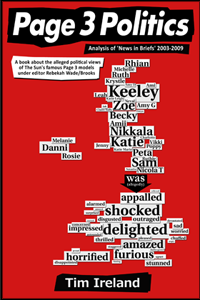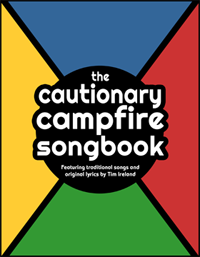This entry was posted on
Wednesday, June 28th, 2017 at
9:42 am and is filed
under Geekage, Teh Interwebs, Tories! Tories! Tories!, UK General Election 2017.
(EARLIER: Word Clouds for Labour/Conservative party Twitter accounts during #GE2017)
I write about politics and corruption and what have you, but when I’m not wearing my cape, I also do data analysis on keyword search data for SEO purposes and have done so for years and years and years and years (and years and years and years and y). My job is to recognise significant patterns, particularly those that represent potential real-world opportunities; behind every keyword query is a real person who wants something, and seeing/appreciating this data appropriately, you learn to gauge the intent and mindset of entire crowds, what their desires are, and how they go about getting their hands on what they think they want.
What we are going to do today is look at the text output from the Twitter accounts of the two biggest parties during the 2017 General Election and try to gain a similar understanding of the tribes behind them; basically, how they each pitched their message to a nation of 65 million people, and how some of the 16 million Twitter users in this country responded.
Now, I know some of you have a pretty good idea of what just happened, but trust me: the devil is in the detail.
(Declaration of Interest: I was one of hundreds engaging in the sport of replying to the @Conservatives’ account during one of the worst-run campaigns in living memory, but as busy as I was, my input is a blip on the radar and nowhere near the numbers I would need to skew Replies data in any meaningful way.)
All figures relate to Tweets and Retweets by @UKLabour and @Conservatives throughout the formal/traditional campaign period for the 2017 General Election. The relevant tweets start at 18 April 2017 and end at midnight on 7 June 2017, when all tweets/figures were captured. There was a final burst of activity from both accounts on election day itself because loopholes in social media are a thing, but there was nothing out of the ordinary beyond the predictable focus on mobilising voters on a national and local level, so I saved a copy of these cheeky extras and put them in a drawer somewhere to forget about later.
TOAP (‘Text On a Picture’) is not included in the figures for word counts or any analysis, and I make no apologies for that. It’s so labour-intensive that I’d need an obsessive intern on performance-enhancing drugs just to extract the data, and I can’t afford the amphetamines, even if I go off-brand or generic.
The captured text was edited ONLY to distinguish between the person May and other uses of the verb ‘may’ or the month ‘May’ for reasons that should be obvious.
I am also blocked on Twitter by @CCHQPress (for complaining about bullying) and by @grantshapps (ditto), so any RTs of tweets from these accounts will be missing from my data set, if they occurred at all.
Material retweeted from accounts with many followers (e.g. those of the respective leaders) and accounts with few followers (e.g. first-time candidates) can arguably boost/drag totals and skew averages, but while we will be taking a quick peek at the likely extent of any distortion in this analysis, I don’t think there’s much in it, and in any case I would argue that the robustness of these leader or ‘soldier’ accounts is just as relevant to the final picture.
Finally, before we go into the data, if you are new to Twitter you need to know about something called ‘The Ratio’:
The Ratio refers to an unofficial Twitter law which states that if the amount of replies to a tweet greatly outnumbers the amount of retweets and likes, then the tweet is bad. – source | relevant article
In this context, retweets are being artificially inflated through legitimate but atypically overt promotion through party/membership networks and (sometimes) media interest, but there’s no hiding The Ratio, and you’re going to see it again and again.
Obviously, there are exceptions to The Ratio that include unusual outpourings of sympathy and/or solidarity, but you’re going to see that, too.
And so, without further fuss or ado, let’s get onto that beautiful data and the Magic Eye pictures lurking behind it…
BIG NUMBERS
Follower/Following totals for each account at 7 June 2017:
|__ @Conservatives: 265K Followers (while Following 1.6K)
|_____ @UKLabour: 447K Followers (while Following 14.1K)
Total number of tweets and retweets published during election:
|__ @Conservatives: 1,507 – (903 Tweets, 604 Retweets)
|_____ @UKLabour: 1,007 – (757 Tweets, 250 Retweets)
Feedback Totals (All Tweets) : Replies | Retweets | Likes
|__ @Conservatives: 252,848 | 260,347 | 385,534
|_____ @UKLabour: 54,775 | 643,378 | 865,129
First appearance of The Ratio, and comparison shows Tories getting 5 times as many ‘Replies’ as Labour over time, but with less than half the number of ‘Retweets’ and even fewer ‘Likes’.
Feedback Average (Per tweet/RT) : Replies | Retweets | Likes
|__ @Conservatives: 167.8 | 172.8 | 255.8
|_____ @UKLabour: 54.4 | 638.9 | 859.1
Labour were getting maybe 50 replies on the average tweet/RT, but over 600 retweets and near to 900 likes. Conservatives, by comparison, were getting over 150 replies with near the same number of retweets, and just over 250 likes.
The numbers clearly show the Conservatives enjoying far less support than Labour on Twitter and more of what one might kindly refer to as feedback, but you’ll get your chance to make your own mind up about that soon.
A closer look at the data shows just over 100 tweets/RTs through @UKLabour exceeding 1,000 retweets, but only 28 through @Conservatives. There was one tweet from @Theresa_May that we’ll get to in a moment that got far more RTs than anything else from them (over 17,000). If I take the figures out for that tweet and re-calculate averages without it, you’ll see a dip of 5 points in Replies and 10 in Retweets (see revised set below):
|__ @Conservatives: 162.7 | 163.4 | 241.3
This is by far the largest potential skew in the set, and there’s no meaningful dent in what the numbers are telling us. It might be different if one party or the other were repeatedly retweeting from more popular tweets/accounts for the sheer hell of it in order to distort their figures somehow, but nothing like that was going on.
While we’re on this subject, let’s swing to the other end of the scale briefly to visit some of the less ‘popular’ tweets that are letting the rest of the class down, before moving on to a closer look at the top performers:
SMALL NUMBERS
The lowest performing tweet/RT by @UKLabour (with 4 replies, 22 retweets and 61 Likes) was this RT from a Labour candidate who later retained her seat in Westminster North.
One of today's teams joined by even more friends. Thank you all #labourdoorstep @220_d_92_20 @PDimoldenberg @AdamHug pic.twitter.com/xrm9cAiSnL
— Karen Buck (@KarenPBuckMP) April 23, 2017
The lowest performing tweet/RT by @Conservatives (with 5 replies, 9 retweets 19 likes) was this RT from Eric Pickles, during one of the occasional short barrages that happened when the @Conservatives were busy shouting at the telly.
Good deal in trade terms is also good for Europe #BBCQT
— Sir Eric Pickles (@EricPickles) June 2, 2017
(Eric, if you’re reading this, we need to have words about Tory fundraising executives who make false allegations of child rape, and why you think that’s something to joke about, and not something to be alarmed about.)
MOST REPLIES
The tweet/RT by @Conservatives with the most replies was an RT of this tweet by Boris Johnson, and you’re welcome to browse through the replies that I have dared to tag as ‘mostly negative’:
Very very very clear – Corbyn will never protect us against our enemies.
— Boris Johnson (@BorisJohnson) June 2, 2017
The tweet above had 7,828 replies by midnight 7 June. The tweet below was in a distant third with 6,121 replies at the time, but it has gained many more replies since the election for some reason (again, mostly negative in my view, but you’re welcome to look):
If I lose just six seats I will lose this election and Jeremy Corbyn will be sitting down to negotiate with Europe: https://t.co/OwbfDseOJh
— Theresa May (@theresa_may) May 20, 2017
The tweet/RT by @UKLabour with the most replies was an RT of this tweet by Jeremy Corbyn (1,753 replies by midnight 7 June), and you’re welcome to browse through the replies that I have dared to tag as ‘mixed’:
Brutal and shocking incidents reported in London. My thoughts are with the victims and their families. Thank you to the emergency services.
— Jeremy Corbyn (@jeremycorbyn) June 3, 2017
Sure, some people under that tweet are alleging or implying that Corbyn is soft on terrorism (as per the Tory/tabloid campaign against him), but this is the most-replied-to example from @UKLabour by far for the entire campaign, and even if you were to wrongly determine that all of the replies were negative, you would have to accept that vocal anger against Corbyn (legit or not) was totally overshadowed by vocal anger against the Tories, even when the former was at its most intense.
This is also the most-retweeted and most-liked of all tweets that appeared via the @UKLabour account.
The second-most-replied-to Tweet was also an RT from Corbyn, from the very beginning of the campaign. Replies are tagged ‘mixed’ again, but for different reasons, and you’re welcome to check them out for yourself:
I welcome the PM’s decision to give the British people the chance to vote for a government that will put the interests of the majority first pic.twitter.com/9P3X6A2Zpw
— Jeremy Corbyn (@jeremycorbyn) April 18, 2017
MOST RETWEETS/LIKES
The tweet/RT by @Conservatives with the most retweets was an RT of this tweet by Theresa May, which one might describe as ‘newsy’ and perhaps a bit controversial to boot. It had 14,230 retweets by midnight on 7 June, it was only just in 2nd place for ‘Most Replies’ (7,759) and it smashed any competition for ‘Most Likes’ (22,155).
‘Likes’ aren’t always good, by the way. The same could be said of retweets, especially in this context:
I'm clear: if human rights laws get in the way of tackling extremism and terrorism, we will change those laws to keep British people safe. pic.twitter.com/8EfUJYUDMK
— Theresa May (@theresa_may) June 6, 2017
The 2nd-most-retweeted tweet through @UKLabour – with 15,753 retweets at close of play – is another RT from Corbyn, this one involving voter registration (an issue which will come up again in this analysis):
Today is the deadline to register to vote. Young people are least likely to be registered. Help change that. RT my message to young people → pic.twitter.com/oNN3iuQZ3m
— Jeremy Corbyn (@jeremycorbyn) May 22, 2017
The 2nd-most-liked tweet through @UKLabour was this one with 50,728 likes during the campaign.
In Manchester now, London today and always in our country: We stand together & united against those who seek to divide us #OneLoveManchester pic.twitter.com/HMmb5D8l9b
— Jeremy Corbyn (@jeremycorbyn) June 4, 2017
Here I choose to also include the 3rd-most-retweeted tweet shared through @UKLabour, not least because they had FIVE top tweets with RTs in 5 figures compared to only ONE from the Tories, and May had to wind up the whole country about human rights to get that.
We need to have some difficult conversations, starting with Saudi Arabia & other Gulf states that have funded and fuelled extremist ideology pic.twitter.com/dZuGWbcAYL
— Jeremy Corbyn (@jeremycorbyn) June 4, 2017
TWEETS ONLY
So far, it’s been all RTs, so let me also note this…
The most-retweeted tweet from the core @UKLabour account starred AJ Tracey…
Grime artist @ajtracey is voting Labour to tackle the housing crisis. If you're with him RT now ↓ pic.twitter.com/Rmnj7ySGuN
— The Labour Party (@UKLabour) May 29, 2017
… and it was the 6th-most-retweeted tweet overall, with 8,758 retweets.
The most-retweeted tweet from the core @Conservatives account starred Jeremy Corbyn…
On June 9th, this man could be Prime Minister. We can’t let that happen. SHARE this with as many people as possible to ensure it never does. pic.twitter.com/ytlxV8ie32
— Conservatives (@Conservatives) May 26, 2017
… and it was 2nd-most retweeted tweet of the @Conservatives campaign.
Further, the second-most-retweeted tweet of the @Conservatives campaign had a mere 5,461 retweets, and the highest they went was with a controversial pledge to change human rights laws, earning them 14,230. Quite a drop-off.
This 2nd-most retweeted tweet is more representative of @Conservatives’ peak performance overall, and it just so happens to feature the kind of material their campaign was famous for.
THE ISSUES
@UKLabour mentioned tax 61 times, mainly when guaranteeing ‘no rise in Income Tax for 95% of taxpayers, and no rise in VAT or National Insurance for anyone’.
@Conservatives mentioned tax 114 times, in part by predicting ‘huge inheritance tax bills’ (aka a ‘death tax’) under Corbyn, but mainly with arguments centering on corporation tax and how Corbyn increasing it puts families at risk somehow. More on families shortly.
@UKLabour mentioned the economy 18 times.
@Conservatives mentioned the economy 89 times, mainly to lay claim to a strong economy and/or to warn people that Corbyn would wreck it. More on this shortly, too.
@UKLabour mentioned defence 4 times.
@Conservatives mentioned defence 18 times, mainly to lay claim to a strong defence capability and/or to warn people that Corbyn would dismantle it (or sit around singing Kumbaya… no, seriously).
@UKLabour mentioned Trident and/or our nuclear deterrent 0 times.
@Conservatives mentioned Trident and/or our nuclear deterrent nearly 50 times, and each and every time, it was to call upon Corbyn to talk about it, or remark upon the fact that he hadn’t talked about it enough.
@UKLabour mentioned terror/terrorism and extremism 7 times, with a clear pattern of Corbyn personally denouncing violence and calling for unity and a revised approach to extremism.
@Conservatives mentioned terror/terrorism and extremism 36 times. The vast majority of these tweets allege that Corbyn is soft/weak on terrorism or even associated with terrorists, but one or two do take the time to brag about May’s record/approach (example: “Theresa May as Home Secretary excluded more extremist preachers than any other Home Secretary before her”) and a few even promise a stepped-up version of this same approach, but the less said about that ‘human rights’ tweet, the better. There’s so much more to be upset about…
@UKLabour mentioned homes, houses and housing 91 times.
@Conservatives mentioned homes, houses and housing 21 times.
@UKLabour mentioned jobs 42 times.
@Conservatives mentioned jobs 34 times.
@UKLabour mentioned wages 49 times.
@Conservatives mentioned wages 5 times.
@UKLabour mentioned railways/transport 26 times.
@Conservatives mentioned railways/transport 0 times.
@UKLabour mentioned the NHS 196 times.
@Conservatives mentioned the NHS 25 times.
@UKLabour mentioned education 64 times.
@Conservatives mentioned education 7 times.
@UKLabour mentioned young people 75 times.
@Conservatives mentioned young people 6 times.
@UKLabour mentioned family or families 19 times.
@Conservatives mentioned family or families 95 times.
Well done, families, but before you get ahead of yourselves: you were used to defend corporation tax and as a pawn in further attacks on Jeremy Corbyn predicting “#chaos for families across the UK”. Further, of the 95 tweets that mention family or families, 55 used the word to stoke fear of economic chaos or hardship under Corbyn (example), a further dozen merely implied danger (including an increased danger of terror attack under Corbyn), and the rest was May begging for votes to ‘strengthen her hand’ (example). I believe I mentioned a certain Mr Devil would be found in that detail, and here’s a prime example of something that looks a bit good for the Tories until you take a closer look at it and see that their use of the word ‘family’ is as much of a sham as anything else. Back to the list…
@UKLabour mentioned pensions or pensioners 79 times.
@Conservatives mentioned pensions or pensioners 8 times.
@UKLabour mentioned immigrants or immigration 0 times
@Conservatives mentioned immigrants or immigration 33 times
@UKLabour mentioned Brexit 38 times.
@Conservatives mentioned Brexit 454 times.
@UKLabour promoted voter registration 149 times.
@Conservatives promoted voter registration 0 times.
Raise your hand if you arrived at this boring-looking list expecting it to be a long way from interesting and certainly not utterly fucking devastating.
Well, we’re not done yet…
THE LEADERS/THE OPPOSITION
@UKLabour mentioned Theresa May by name, surname or username 39 times out of 1007 tweets and RTs.
The vast majority of these messages referred to her fox-hunting position or called on May to provide answers to questions about social/pensioner care arising from her manifesto.
@Conservatives mentioned Jeremy Corbyn by name, surname or username 536 times out of 1,507 tweets and RTs; more than a third of the time.
The vast majority of these messages condemned Corbyn or called on him to condemn things himself, so it’s pretty clear what the Tories were doing instead of talking about the issues, and in any case the word clouds I published at the height of the campaign tell this exact same story.
There were 83 Retweets from @jeremycorbyn published by @UKLabour.
There were 62 Retweets from @theresa_may published by @Conservatives.
@Conservatives mentioned their own leader Theresa May by name another 300 times besides this, compared to @UKLabour heralding their leader only 10 times.
Ten. Times.
For the rest of the campaign they allowed him to speak for himself, almost as if he were a real leader, leading people. Quite a novel approach in this election, as it turns out.
Figures also indicate that there is some balance in reference to the opposition, just not so focused on the leader where Labour is concerned:
@UKLabour mentioned the word ‘Tory’ 111 times, ‘Tories’ 189 times and ‘Conservatives’ 10 times, totalling 310 mentions of the Conservative party (compared to 39 mentions of May by name).
That’s an 8:1 ratio in favour of party over personality from @UKLabour
Now, consider the number of times @Conservatives mentioned ‘Labour’ by name: 90 times (compared to 536 mentions of Corbyn by name).
That’s a 6:1 ratio in favour of personality over party from @Conservatives
This alone shows how fundamentally different the two campaigns were, and it really bears mentioning that it was Labour and not the Conservatives who had a leader with a personality worth focusing on.
CONCLUSIONS
The Twitter facet of the Tory campaign failed so completely and so thoroughly on its own merits that the only thing that really bears mentioning about @UKLabour in any short conclusion is its comparative normality and evident popularity.
@Conservatives failed to focus on issues and instead focused on personalities, to their evident detriment. The Twitter public was clearly upset by their campaign and expressing specific concerns about it, but no-one was listening, presumably because Mummy knew best. The Tories were deaf to public anger to such an extent that they recycled widely derided and even previously-discredited material throughout the campaign. They also released a notoriously callous and over-confident manifesto into the wider storm of upset and thought nothing of it.
Even if Tories were so paranoid as to ignore the specifics of negative feedback, the numbers alone (that were blindingly obvious very early in the campaign) would have screamed ‘Change direction!’ to any social media manager worth their salt. I can only speculate why no-one changed direction, but my best guess is the kind of raw hubris that comes with never having to face up to responsibility even once in your life.
–




By Daniel McClain July 2, 2017 - 5:05 am
Interesting analysis. Do you think Russian hackers played a role?
By Tim_Ireland July 19, 2017 - 7:09 pm
In this disaster? No.